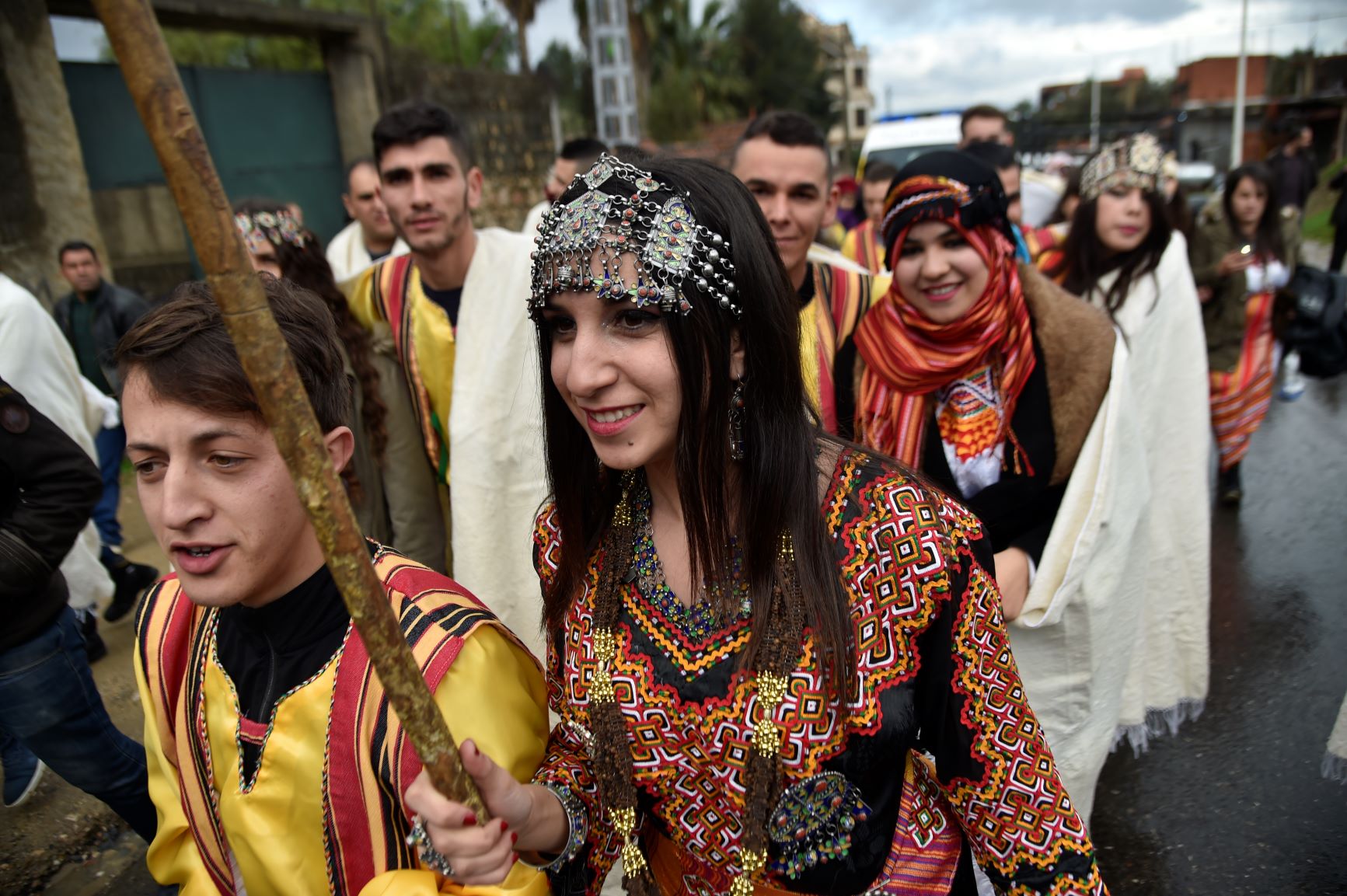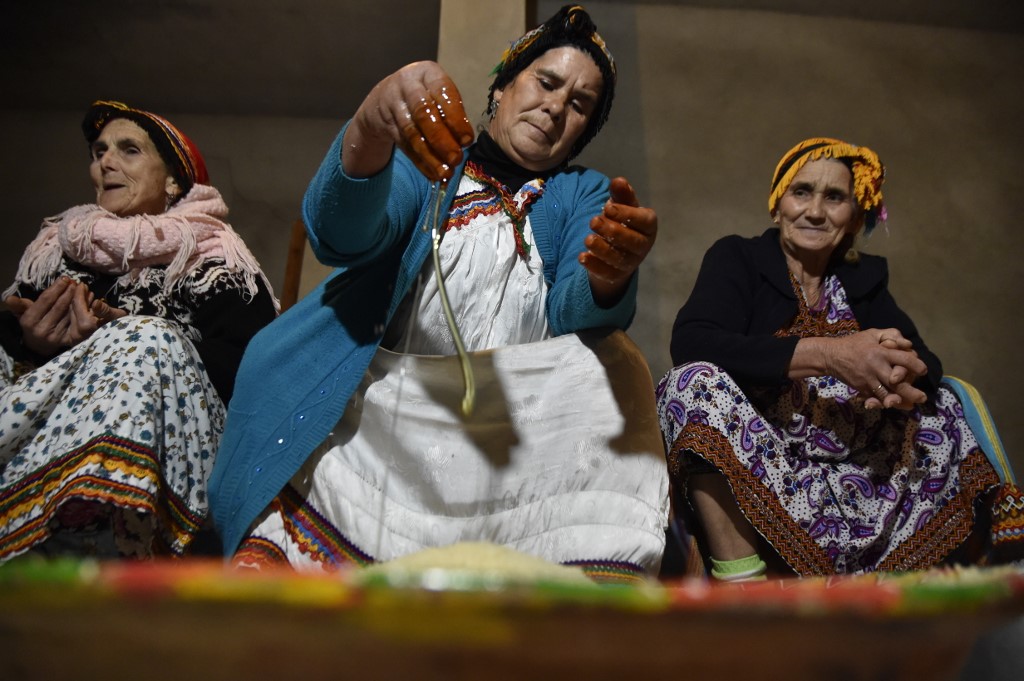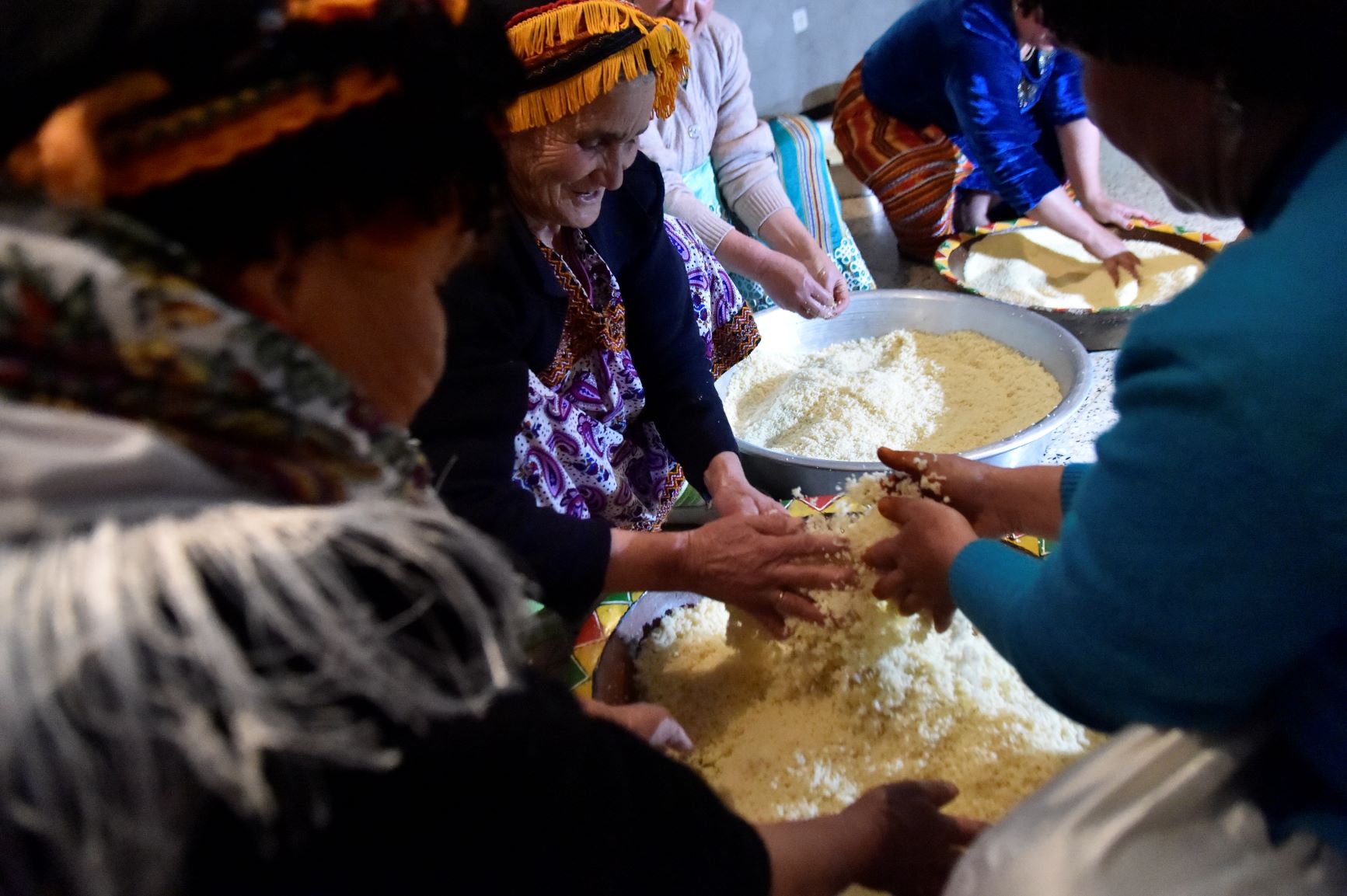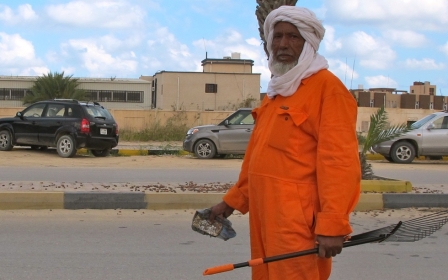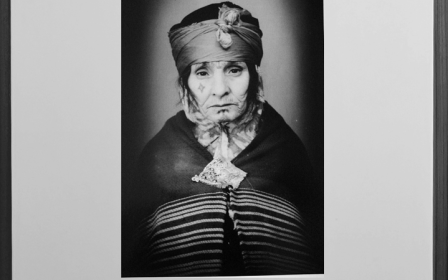What you need to know about Amazigh New Year, or Yennayer
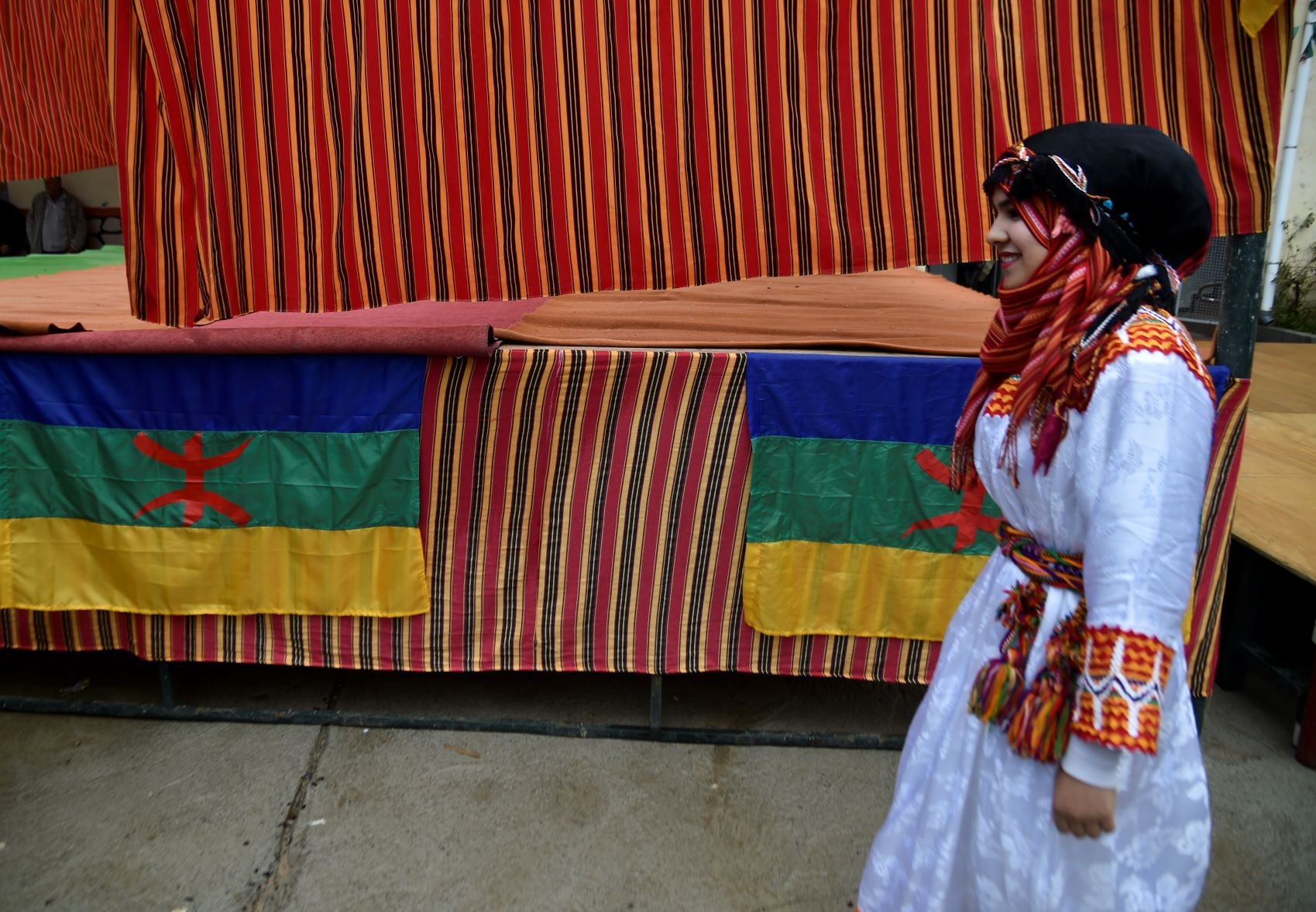
Starting on Tuesday 12 January, Amazigh people in Algeria, Tunisia, Morocco, Libya, and parts of Egypt, as well as the diaspora, will celebrate Yennayer, the Amazigh new year.
The year 2021 in the Gregorian calendar marks the year 2971 for the Amazigh, who are also known as the Imazighen.
Dating back to antiquity, the celebration is rooted in North African folktales and legend, and represents the bond between the Imazighen and the land they live upon, as well as the earth’s wealth and generosity. Yennayer is therefore a festival of nature, agrarian life, rebirth and abundance.
In recent times, the celebration of Yennayer has taken on an added significance as a way of keeping the Amazigh cultural identity alive.
The term "Yennayer" is also the name given to the first month of the Amazigh calendar.
New MEE newsletter: Jerusalem Dispatch
Sign up to get the latest insights and analysis on Israel-Palestine, alongside Turkey Unpacked and other MEE newsletters
When is Yennayer?
The evening preceding Yennayer is an occasion known as "Thabbourth Aseggas" (the door of the year) by the Kabyles of Algeria or "Id Suggas" by Amazigh groups in Morocco. This event falls on 12 January and marks the start of the celebrations in Algeria. The official state holiday of Yennayer in Algeria also coincides with Thabbourth Aseggas on 12 January.
Some Amazigh groups in Morocco and elsewhere start their celebrations on 13 January.
Etymologically, the word "Yennayer" is believed to be a combination of the Amazigh words "Yenn" (One) and "Ayur" (month). An alternative explanation is that the word is a borrowing from the Latin "Ianuarius", from which the word January in English and "Yanayir" in Arabic are ultimately derived.
The Imazighen’s agricultural calendar begins on 13 January and is inspired by the Julian calendar, which was dominant in North Africa during the days of Roman domination.
Yennayer also marks the start of a 20-day-long period known as the "Black Nights", which represent one of the coldest times of the year.
What is the Amazigh calendar?
The Amazigh calendar started taking on a formal form in the 60s when the Academie Berbere, an Amazigh cultural association based in Paris, decided to start counting Amazigh years from the year 950 BC. The date was chosen to match the pharaoh Shoshenq I’s ascension to the throne of Egypt.
Shoshenq was an Amazigh of Libyan descent, and is one of the most notable Amazigh figures in ancient North African history. For Imazighen, the date therefore symbolises strength and power.
The Amazigh calendar is directly derived from the Julian calendar, which was used in Europe before the Gregorian one. It was used in North Africa to regulate the agricultural seasons.
When was Yennayer first celebrated?
Yennayer celebrations date back to antiquity but an exact date is impossible to determine. Contrary to common belief, Yennayer festivities have nothing to do with the Pharaoh Shoshenq I, and the tradition is believed by the Imazighen to have preceded the monarch.
Several myths and legends have formed to explain the origin of the occasion and one commonly shared folktale involves a stubborn old lady.
In Amazigh tradition, the month of Yennayer is said to have originally had only 30 days.
A tenacious old lady is said to have defied the wrath of winter by taking her goat grazing during the last day of Yennayer, one of the Black Nights.
Offended by the old woman’s insolence, Yennayer borrowed an extra day from Furar (February) and forced an extra cold night on the woman in retribution.
The story is an allegory expressing the significance of living in harmony with nature, and for the importance of patience and caution. In a region known for its cold winters and hot summers, North Africans faced arduous challenges in shielding their crops and guarding their health.
Who celebrates Yennayer?
Yennayer is celebrated by both the Amazigh, whose culture has its roots in pre-Arab North Africa, and Arab communities in the Maghreb region, and some parts of Egypt.
Some Arabs in Morocco and Algeria refer to it as “aam filahi” [agrarian year]. Yennayer festivities are becoming more widely acknowledged as more North Africans take an interest in Amazigh culture and its origins.
How do you prepare for Yennayer?
Yennayer celebrations centre on family gatherings and enjoying joyful music. Most families get ready for the day by preparing a feast of traditional foods with family matriarchs leading the arrangements for the meal.
It has also become customary to wear traditional Amazigh outfits and jewellery especially for the occasion.
In line with the theme of rejuvenation, wealth and life, Yennayer has become an occasion for important life events such as weddings, circumcisions, and a child’s first haircut.
In some areas of Algeria, Yennayer celebrations last up to three days. The family gathers each day for a festive meal, usually semolina porridge on the first day, couscous with seven vegetables on the second day, and chicken on the third day.
People express their best wishes for the new year by saying: "Aseggas Ameggaz" or "Yennayer Amrvouh (Happy New Year)".
What do the celebrations symbolise?
Yennayer is about living in harmony with nature despite its potential to create life-threatening conditions, such as heavy rains, cold, and the perpetual threat of famine. Faced with these hardships, the ancient Amazigh peoples deified nature.
Religious beliefs changed with the arrival of Judaism, Christianity and later Islam in North Africa, but the celebration remained.
Legend has it that whoever feasts on the day of Yennayer will spend the rest of the year not having to worry about famine or poverty.
The abundance of wealth is expressed by cooking couscous with seven vegetables and seven different spices.
In the past, each member of the family had to eat a chicken on their own to make sure they were full on the day of Yennayer. A full belly on Yennayer is meant to symbolise fullness and prosperity for an entire year.
It is also tradition for women to take some crumbs and leave them outside for insects and birds, a symbolic gesture to make sure no creature remains hungry on Yennayer.
Another way of celebrating Yennayer in Algeria is by preparing “Treize”- a mix of sweets, chocolate, and nuts - gently thrown on the youngest child in the family to symbolise abundance and plenitude.
What do people eat on Yennayer?
As on most North Africa occasions, couscous is ever-present on dinner tables, as are sweets, such as khfaf (also known as sfenj) which is a North African donut. In Algeria, feasts include tamina, a sweet dish made of toasted semolina mixed with butter and honey, and then traditionally decorated with cinnamon.
How do governments view Yennayer?
In 2018, Algeria became the first North African country to make Yennayer a national holiday in an attempt to recognise Amazigh culture in the country. Other North African countries have not designated the celebration as a national holiday despite it being celebrated widely and popular support for making it a national holiday.
How will the coronavirus pandemic affect celebrations?
It is very likely that this year’s Yennayer will be affected by the pandemic and North Africans will steer clear of large family gatherings, as well as street celebrations.
In recent years, schools in Algeria have sought to explain the importance of Yennayer through plays and choirs in the Amazigh language, Tamazight. This year, such events will be cancelled in line with efforts to combat the spread of Covid-19.
In its essence, Yennayer is about making peace with the occasional harshness of nature and celebrating the ability not only to survive but to thrive despite facing hardships.
The pandemic may give us one more reason to be grateful for surviving and to celebrate Yennayer.
Aseggas Ameggaz 2971 and may it be a kind year to everyone!
Middle East Eye delivers independent and unrivalled coverage and analysis of the Middle East, North Africa and beyond. To learn more about republishing this content and the associated fees, please fill out this form. More about MEE can be found here.


